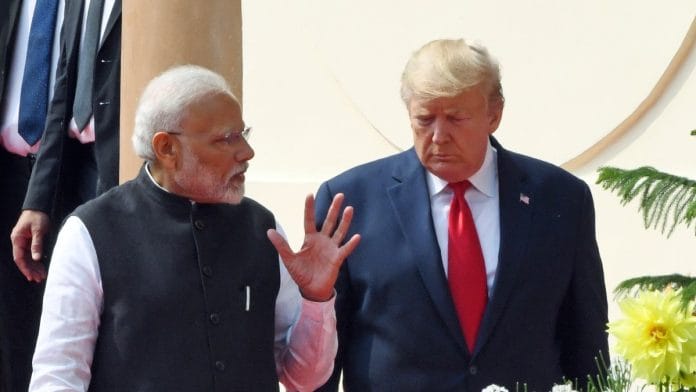Setting the record straight, Prime Minister Narendra Modi addressed critical global speculations in a telephonic conversation with American President Donald Trump. PM Modi firmly clarified that at no point was there any discussion, at any level, on a trade deal between India and the United States, or any proposal for mediation by the US during the India-Pakistan conflict. He also declined Trump’s invitation to visit the US, citing prior engagements. The message was clear: India doesn’t need a Western stamp of approval to handle its disputes or define its interests.
Modi’s blunt rejection of mediation isn’t about snubbing peace talks or flexing muscle against Pakistan. It’s about narrative warfare. Donald Trump often declares himself a peacemaker or unifier. By refusing to let Washington mediate disputes like Kashmir, Modi is asserting India as a rulemaker. This isn’t isolationism—it’s strategic autonomy, a declaration that India’s future is written in New Delhi, not on Pennsylvania Avenue.
This isn’t just about India-Pakistan tensions either. It’s about who gets to control the story in a multipolar world. For decades, the US has positioned itself as the global referee, doling out solutions to conflicts it often had a hand in stoking.
Trump’s team, eager to spin a legacy of peace deals, sees South Asia as a stage for grandstanding. But India’s refusal to play along signals a shift: emerging powers are no longer content to be props in Western narratives. Nations are eyeing India’s move, wondering if they, too, can rewrite their roles.
Modi’s no flips the dynamic
Ever since India’s Independence, the US has treated the subcontinent like a Cold War chessboard. It armed Pakistan to counter Soviet influence, while non-aligned India was cast as the difficult child. Today, America’s mediation offers—whether on Kashmir or trade—come with strings. Accepting them means ceding narrative control, letting Washington frame India as a problem that needs fixing. Modi’s “no” flips this dynamic.
The US has long dangled mediation, knowing it’s a low-risk way to look statesmanlike while keeping India and Pakistan in check. But India sees through the charade. In 2019, when the government of India revoked Jammu & Kashmir’s special status, it didn’t ask Washington’s permission—it acted, and then managed the fallout.
The move sparked global chatter, but New Delhi weathered it without leaning on Western goodwill. Modi’s latest rebuttal builds on that: Why let a third party referee a game India can play on its own terms?
Also read:
India won’t be arm-twisted
The US wants India to open its markets wider, but Modi’s stance ties trade to sovereignty. By linking trade talks to non-interference, he’s signalling that India won’t be arm-twisted into deals that prioritise American interests over its own.
India’s economy, now the world’s fifth-largest, grew 8.2 per cent in 2023-24, according to the World Bank. It’s a heavyweight that can afford to set its own rules, not beg for scraps at the global table.
This isn’t about burning bridges. India still engages the West. Take a look, for instance, at the Quad partnership with the US, Japan, and Australia to counter China. But engagement doesn’t mean subservience. The country’s ‘Make in India’ push and tech advancements—like the 5G rollout led by homegrown firms—show that it can compete without playing by someone else’s script.
Trump’s team thrives on spectacle, casting him as the ultimate dealmaker. A ‘peace deal’ in ‘South Asia’ would be a feather in his cap, especially with US elections looming. But Modi knows that letting America claim credit risks framing India as a junior partner. Instead, he’s betting on India’s own story: a rising power that negotiates from strength, not gratitude. This resonates globally—think of African nations sidestepping Western aid conditions, or countries from the Association of Southeast Asian Nations (ASEAN) balancing China and the US without bowing to either.
Modi’s “no” isn’t just a rejection—it’s a manifesto. India isn’t fighting Pakistan to prove its strength; it’s refusing to be America’s prop. In a world where narratives shape power, India is asserting its right to write its own. This isn’t diplomacy as usual; it’s a declaration that the old script—where Washington called the shots—is obsolete. India’s gamble could inspire a rewrite of the world’s story, one where emerging powers don’t just play the game but set the rules. And that’s a plot twist worth watching.
Brabim Karki is a Nepal-based businessman, author, and columnist who writes on international affairs. He is the chairman of Mero Tribune media. His X handle is @brabim7. Views are personal.
(Edited by Zoya Bhatti)







Iron Lady waiting for 1 hr to meet USA president, here MOdi say NO.. to USA President.
????
Bang-on. India is no longer a pushover. It can take stand based on its self-interest
Modi is struggling when MMS did all these with ease